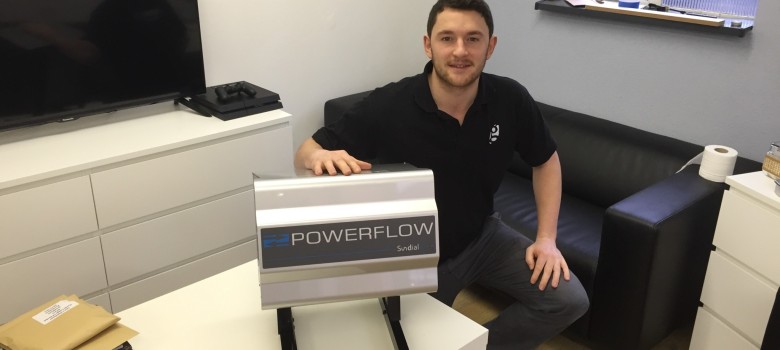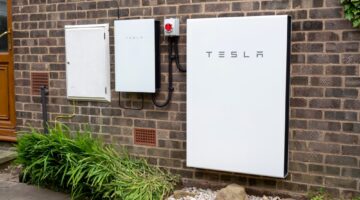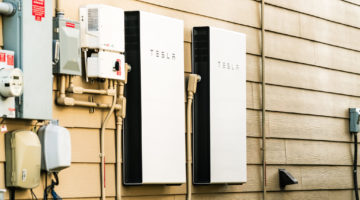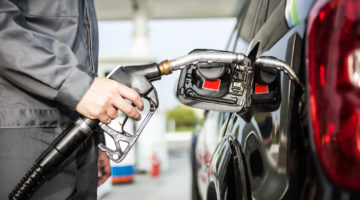
UPDATE: The Feed-In Tariff is now closed for new applications. To find out about the new scheme designed to replace it, click here.
With the impending government review into feed-in tariffs (FiTs), in January 2016, grid tied microgeneration systems will see an 85% cut in the generation rates paid out and the model that previously saw consumers see a decent pay-back in a relatively short space of time on these systems will disappear in its current format. The question is whether a new model that is based on an off-grid or a partial storage system can take its place and still be viable for the end consumer?
What is a grid-tied microgeneration system?
The most common microgeneration systems found in the UK are the ones that are installed with a connection to the Grid. This means that when the system is producing more electricity than is being consumed in the home or office, the excess electricity goes back into the national grid so it can then be
A grid tied system is also good when the system is not producing enough electricity or not producing anything at all but there is demand from the users for energy. In this case the grid tied property would simply import the electricity from the grid, but not as much if the microgeneration system is also generating electricity simultaneously.
What is an off-grid system?
An off-grid system usually refers to systems that have storage capacity, which enables them to store electricity when it is being produced and the demand for the usage on site is low. These storage systems are also referred to as Energy Storage Systems or ESS.
For example, in a typical home that has a solar PV system, during the day when the users are at work or out and about electricity would be generated during the daylight hours. They would divert this electricity typically to a lithium-ion battery, which would then store this ready for when the appliances or energy emitting devices are needed.
Renewable systems have intermittency problems, which mean that they always produce enough electricity to enable the users to be fully self-sufficient from the grid. Solar PV systems on the other hand only produce electricity during the daylight hours and the panels at most are about 20% efficient. This means that even if you had a battery system ESS that was trickle charged during the day, even if the battery had enough capacity, it wouldn’t be enough to fully satisfy the demand when you need the energy at night.
Therefore when we talk about ‘off-grid’ systems in the UK we are probably referring to the fact that they have some sort of storage component but not necessarily fully self-sufficient from the grid to meet all the domestic or business demand.
How does an off-grid system work (in theory)?
If you have solar PV installed with a battery pack ESS for electricity storage then the principle is pretty simple. During the daylight hours the system generates electricity and trickle charges the battery. In a typical home the amount of electricity generated is usually in excess of what is used by background appliances, which enables your battery to charge so that in the evening when you return from work, you have back-up power to run your appliances.
If you are a business on the other hand, you may have a wind turbine system wired to the electrical circuits with the back-up batteries. At night when it tends to be windier, it will drive the propulsion on the turbines, which should generate the electrical charge. So when the business is shut down for operations overnight, the battery should be trickle charged ready for normal operations in the morning.
A solar PV system does not really work in typical 9-5 business because the electricity is used throughout the day and therefore it wouldn’t make much sense installing a battery power back to store the energy.
What types of ‘off-grid’ systems are currently available?
The most typical ESS on the market are of the battery storage system format. These systems are currently being sold to domestic or commercial users are based on the lithium-ion battery. They come in different sizes starting typically at 3/4kW and going right up to MW power for larger commercial properties and utilities.
Sodium-ion battery technology appears to be a more sustainable and robust solution but these batteries are not yet available for commercial or domestic use.
Hydrogen fuel cell technology can also be used for temporary energy storage or to level off peak demand for users. These systems are quite common for large commercial premises or utilities looking to balance peak electricity demand.
How much does an off-grid system cost in today’s prices?
You can purchase a starter battery system (manufactured by Samsung), which includes the battery, its inverter and the monitoring system for £6,000. Combining a 4kWp solar PV system installation with a typical battery system will start at about £12-£14k. Obviously with bigger systems installed you are looking at larger installation values.
Companies like Tesla, Google and Apple are looking to push the boundaries of these technologies and making sure that the final consumer gets a fair price. This is why when Tesla launched the ‘Powerwall’ it is looking to market their lithium-ion battery for $3,500 for the US consumers, and we may well see similar prices in the UK when it is launched here.
Is an off-grid system worth it?
You would say by looking at the numbers and the costs involved that it is probably not worth installing this technology just yet. For £6,000 investment for essentially a system that is providing you less than 4kW of power it’s not really worth it, and it would be hard to see this money paying back anytime soon.
Not most lithium-ion batteries are limited to a certain number of charge cycles – the components that are housed in the battery wear down over time and become less efficient. Therefore these systems won’t last a life time and you would have to certainly look to replace a current model within 10 years.
Installing Battery Storage
Interested in having a battery storage system installed in your home? We have scoured the country for the best tradesmen, so that we can make sure we only recommend those we really trust.
If you would like us to find you a local installer to help install a battery storage system in your home, just fill in the form below and we will be in touch shortly!












No Comments yet! Be the first one.